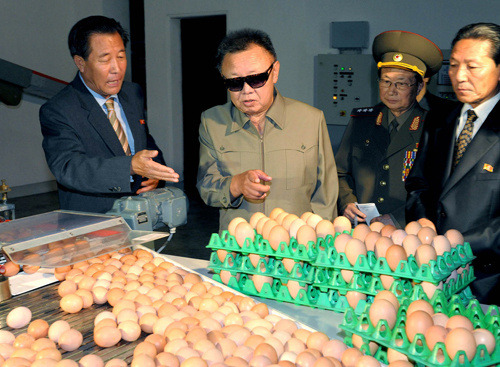December 16, 2010
B.R. Myers on Good Literature and Bad Politics
by Melville House
 Brian Reynolds Myers (or B.R. Myers) is one of those rare individuals who is a practicing expert in multiple fields. In the literary world, he is best known for his razor-edged attacks in The Atlantic on some of contemporary letters most celebrated figures. Jonathan Franzen‘s Freedom: “juvenile,” Toni Morrison‘s Mercy: “shallow and vague,” Denis Johnson‘s Tree of Smoke: “no book review can convey the tedium of reading bad prose in such unrelieved bulk.” (For a complete understanding of what The Wall Street Journal calls “a welcome contrarian takes on the state of contemporary American literary prose,” we invite you to explore Myers’s A Reader’s Manifesto.)
Brian Reynolds Myers (or B.R. Myers) is one of those rare individuals who is a practicing expert in multiple fields. In the literary world, he is best known for his razor-edged attacks in The Atlantic on some of contemporary letters most celebrated figures. Jonathan Franzen‘s Freedom: “juvenile,” Toni Morrison‘s Mercy: “shallow and vague,” Denis Johnson‘s Tree of Smoke: “no book review can convey the tedium of reading bad prose in such unrelieved bulk.” (For a complete understanding of what The Wall Street Journal calls “a welcome contrarian takes on the state of contemporary American literary prose,” we invite you to explore Myers’s A Reader’s Manifesto.)
Ever since November 23rd, when North Korea fired artillary shells at the South Korean island of Yeonpyeong, Myers has been wearing his other hat as an expert on the oft-misunderstood cultural psychology of The North Korean people. In his recent op-ed for the New York Times (“North Korea Will Never Play Nice”) Myers writes:
In fact, as both its adversaries and supporters should realize, the North can never play nice. Just as our own economy-first governments must ensure growth to stay in power, a military-first regime must deliver a steady stream of victories or lose all reason to exist….There is no easy solution to the North Korea problem, but to begin to solve it, we must realize that its behavior is aggressive, not provocative, and that its aggression is ideologically built in. Pyongyang is thus virtually predestined to push Seoul and Washington too far, thereby bringing about its own ruin.
In his subsequent Wall Street Journal op-ed (“The West’s North Korean Delusion”) he argues that North Korea has no pragmatic or dove-leaning factions at all.
While it is nearly impossible to prove the absence of an internal policy debate, especially in such a closed country, these assumptions do not accord with what we know for sure about North Korea. There is no evidence in its official culture of any difference of opinion in regard to foreign policy. The propaganda apparatus, which is run by the party and not the military, has for decades been assuring the North Korean people that the republic will never disarm, that the Yankees are inherently evil and that the U.S. and North Korea will be enemies forever. The diplomats whom Mr. [Selig] Harrison considers so dovish are celebrated in North Korean fiction as “diplomatic warriors” who bully and bamboozle their Western counterparts.

Tuesday, he was quoted in another Wall Street Journal article in which he describes the discrepancies between North Korea’s internal and external propaganda:
North Korea’s subscription to the Nuclear Non-proliferation Treaty and its later withdrawal from it was portrayed in the country’s internal media, including newspapers and books, as a crafty exploitation of the treaty for its own purposes.
“This would never be said in external propaganda, which tries to show the North as a beleaguered, insecure country that feels threatened by warmongers in Washington and Seoul,” Mr. Myers said.
Internally, he said, North Korea portrays itself as “an invincible military power, an object of terror to a craven United States and South Korea, a country that plays by its own rules.”
Let us hope that international diplomacy cracks the deadly puzzle of North Korea sometime soon… so that Myers may return to the vicious and unending–but far less lethal–turf war that is contemporary literature.
And on a lighter note, one may read Flavorwire’s “2010 Blockbusters as Judged by Kim Jong-Il” or visit this wonderfully weird blog which features images of Kim Jong-Il looking at things.